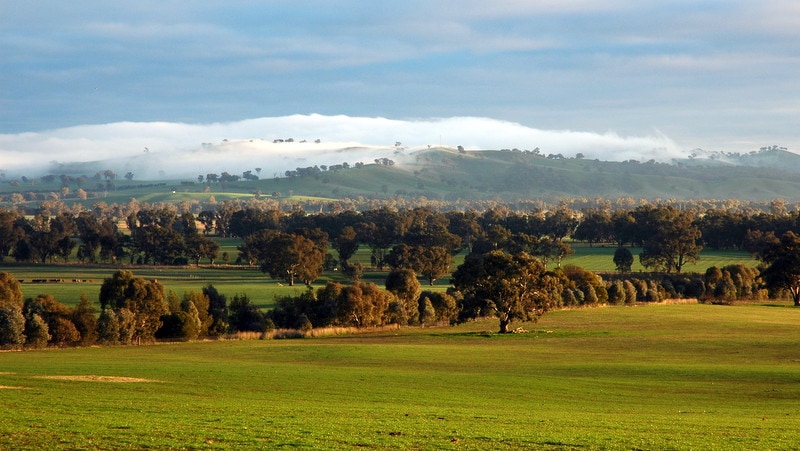20 years of biodiversity and farm health research at TERN landscape monitoring sites will help ANU researchers and farmers better integrate the environment and farming to deliver increased productivity, improved conservation outcomes and more resilient farming communities.
In Australia’s iconic temperate eucalypt woodlands, decades of research lie behind the establishment on farms of wildlife corridors and patches of native vegetation, and the retention of paddock trees.
The woodlands have largely been cleared for grazing. But Australian National University (ANU) ecologists using TERN’s long-term ecological research sites at Nanangroe in New South Wales, and other Australian National University long-term research sites in farming landscapes, have shown, by analysing years of research, that even a thin scattering of native trees in paddocks can make a difference to the health of a natural environment.
They help conserve soil and the shade they throw reduces heat stress in livestock—both of direct monetary benefit to the farmer. They also provide a home for wildlife or protected stepping-stones for them between stands of bush.
Researchers from ANU’s Fenner School of Environment and Society have been sharing these results with local famers, including Sam Archer, who have replanted some previously cleared land and provided the conditions to bring wildlife back to their farms.
“The changes we have seen are an increase in productivity, a great balance between the environment and farming and an increase in native vegetation,” says Sam in a new video by ANU highlighting the collaborative work.
“We’ve planted trees to reduce water table but in actual fact we’ve doubled our carrying capacity at the same time.”
“We are more profitable in every sense. Whatever way you measure that with a triple bottom line: from a production perspective, an ecological perspective, a social perspective or a community perspective.”
The champion of this work at TERN’s Nanangroe Plantation Plot Network, which forms part of ANU’s Healthy Farms, Healthy Profits, Healthy Farmers project, is Professor David Lindenmayer of ANU.
“Our results are a direct consequence of years of accumulated research and monitoring at long-term research sites including those co-funded through TERN in recent years,” says David.
“The length of time we’ve been conducting this research gives us confidence in our findings, and, just as important, it gives the farmers confidence that we are right.”
And, it is such confidence that is helping build more resilient farming communities. Moving scientific knowledge from the realm of scientists to the wider world equips farmers with the knowledge they need to make more informed land management decisions, especially during trying times such as drought says Sam, the landholder.
“For me and my family, it certainly made it easier to get through the drought because it gave us encouragement that we were moving in the right direction and that what we were creating was actually more resilient and able to adapt and persist during those tough times.”
The success of this work can partly be put down to the relationships between the ecologists and the community in which they conduct their research, says Dr Emma Burns of ANU.
But as Emma explains it, what is most exciting about this new initiative is that this relationship will now be broadened to include mental health and finance researchers so that we can take a more holistic approach to research in an agricultural context.
And this is all thanks to the foresight of philanthropic organisations such as the Ian Potter Foundation and the Vincent Family Fairfax Foundation that have provided the seed funding for this exciting new transdisciplinary initiative at ANU.
“We work in these communities for many years, and build relationships with people. The knowledge exchange flows both ways. We have a presence in their lives, and they in ours.”
- For more information on the infrastructure provided by TERN’s Long Term Ecological Research Network click here.
- For more information on ANU’s research at TERN’s Nanangroe Plantation Plot Network please contact Dr Emma Burns.
- For more information on the ANU’s Healthy Farms, Healthy Profits, Healthy Farmers project click here.


View the seminar David Lindenmayer recently presented for the National Landcare Program reporting on the results of 20 years’ monitoring and the lessons learned






